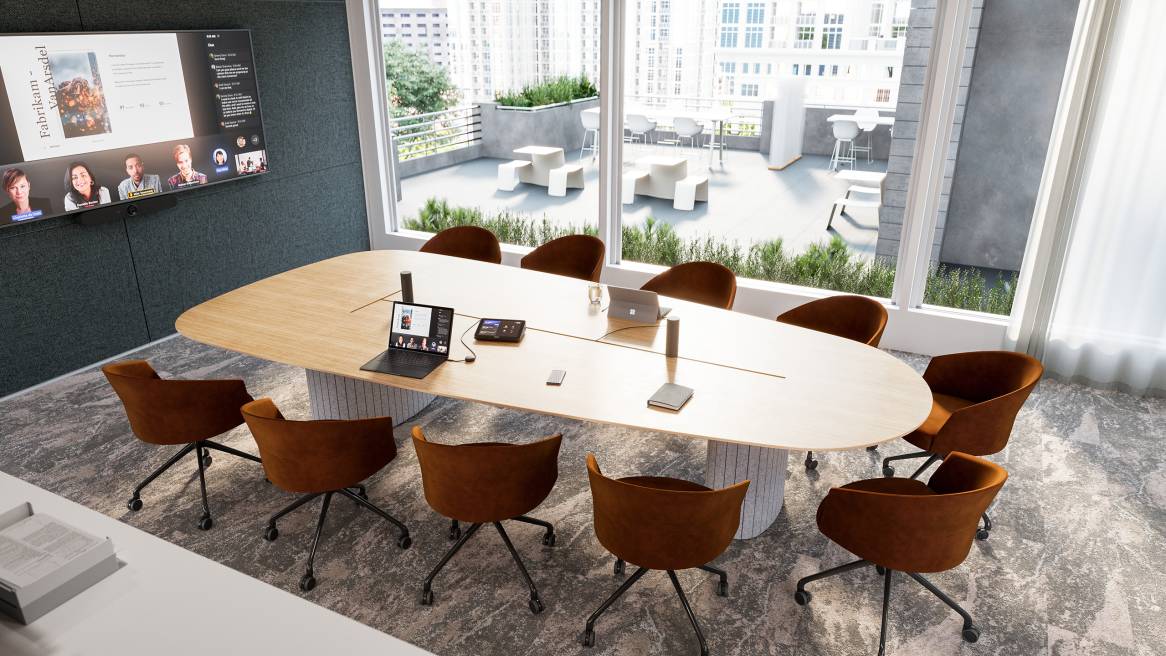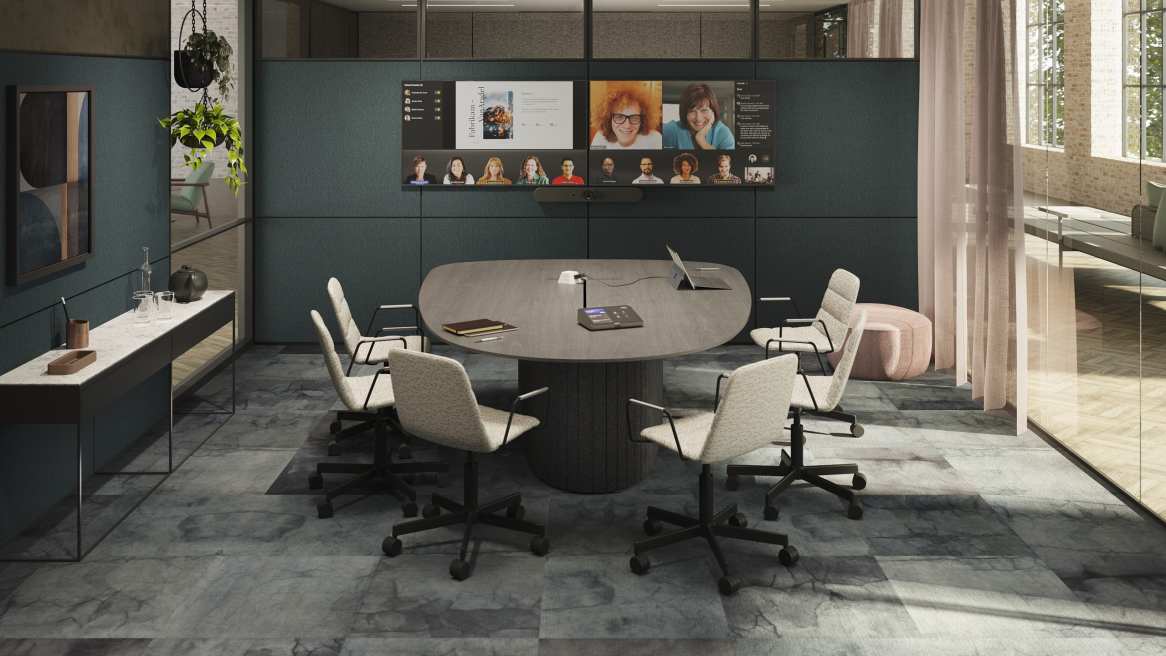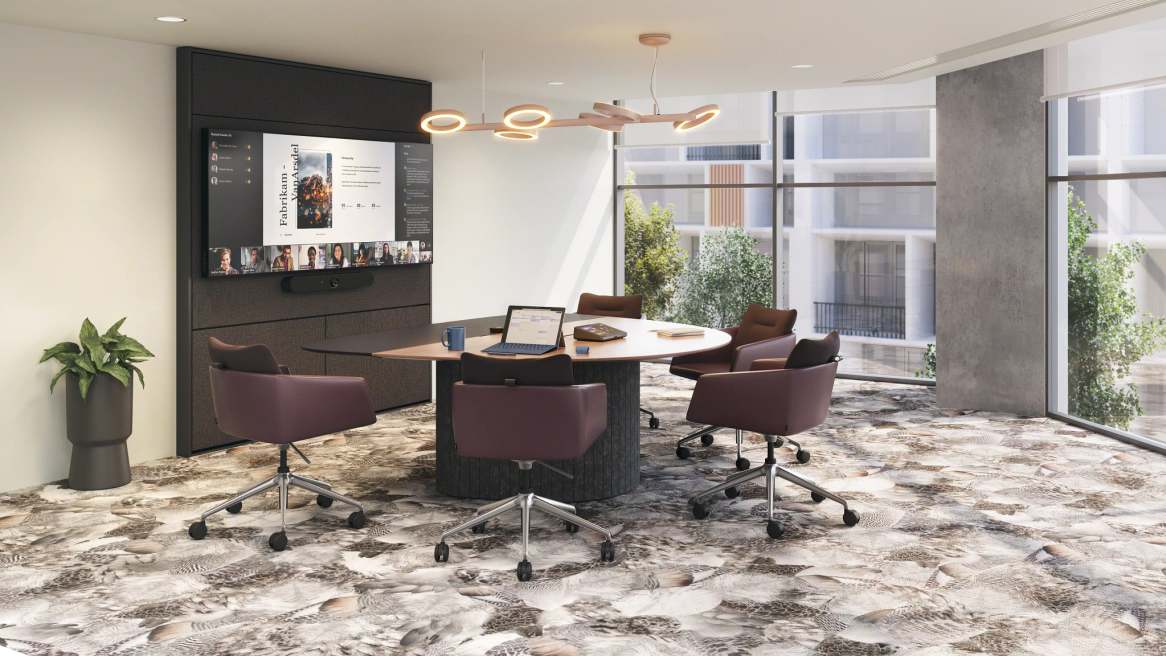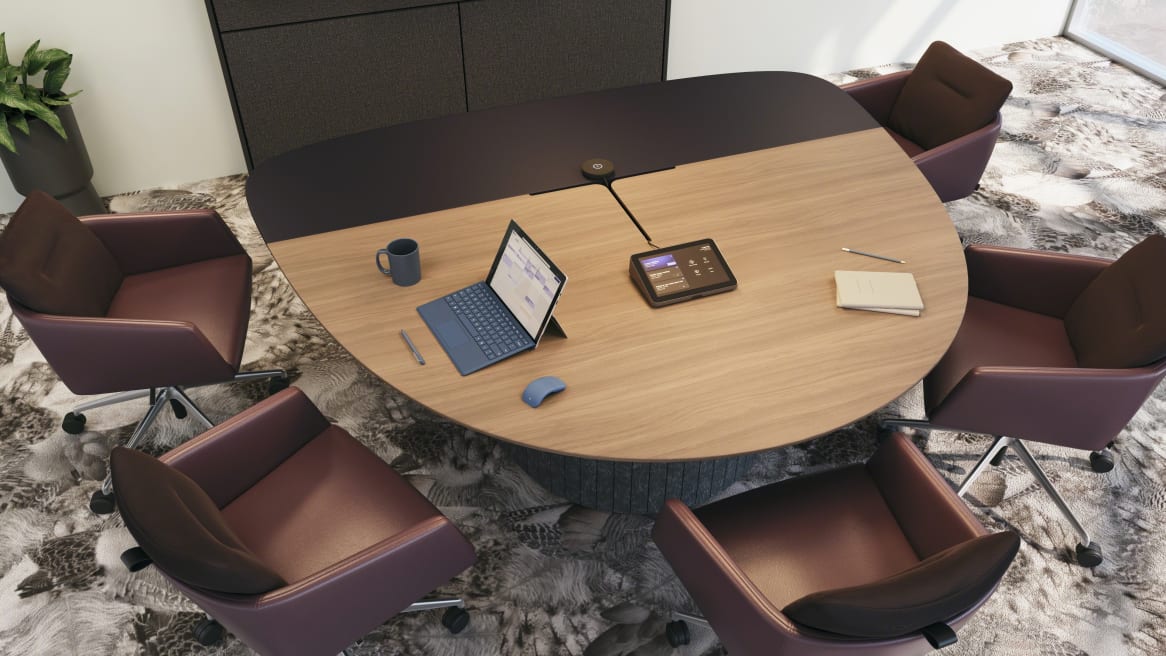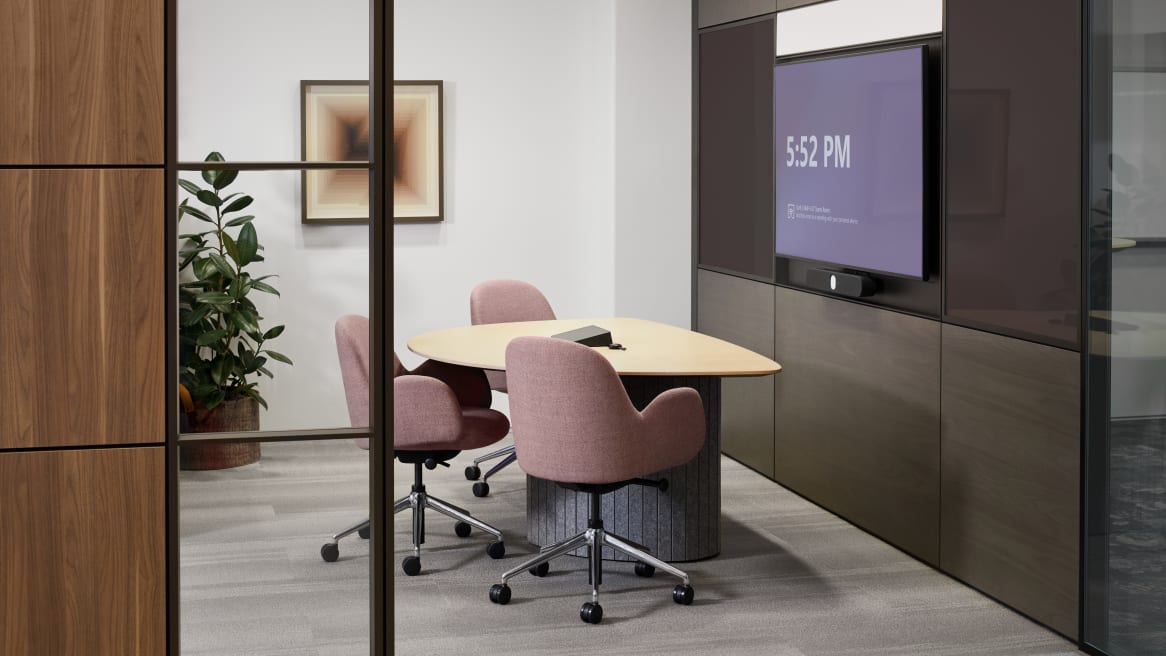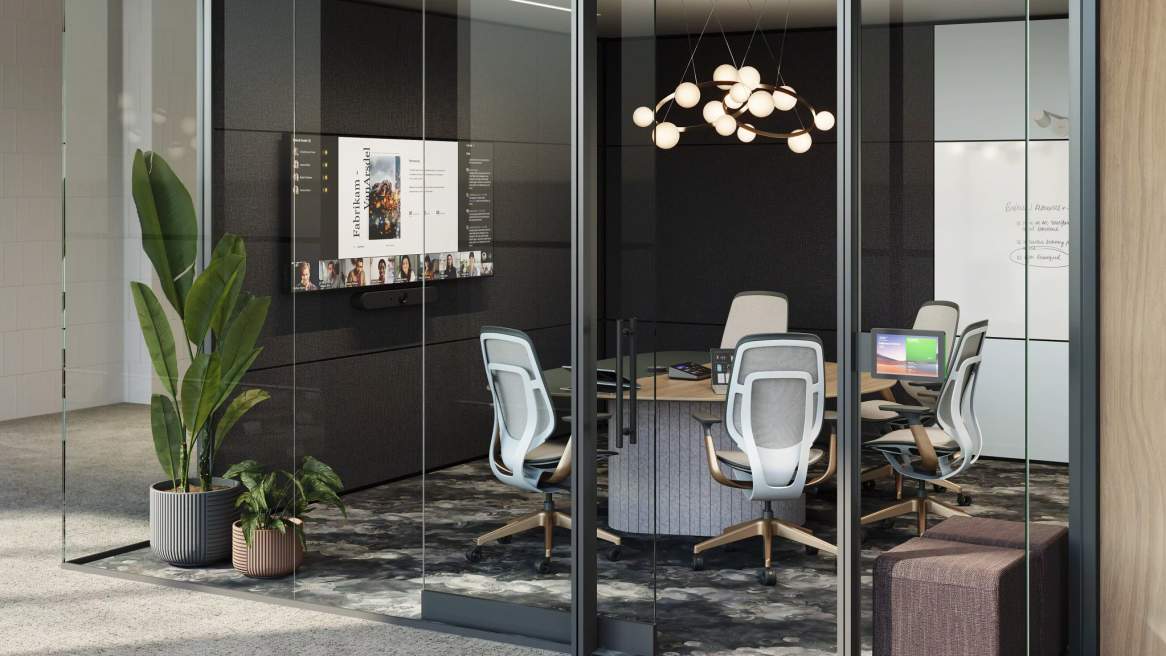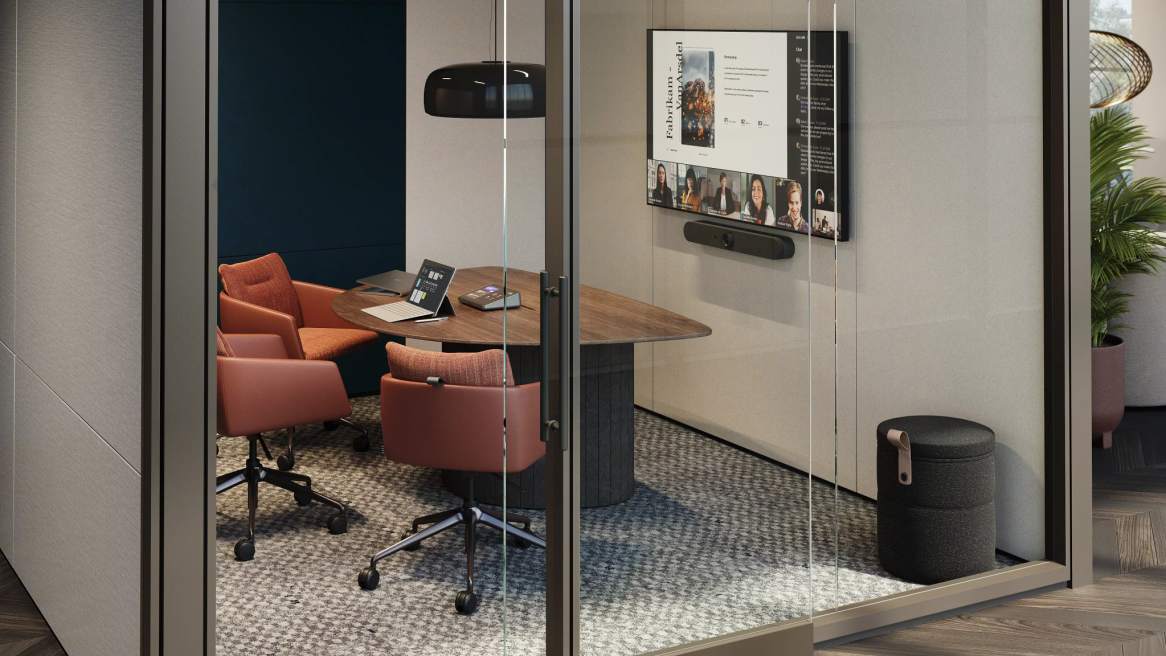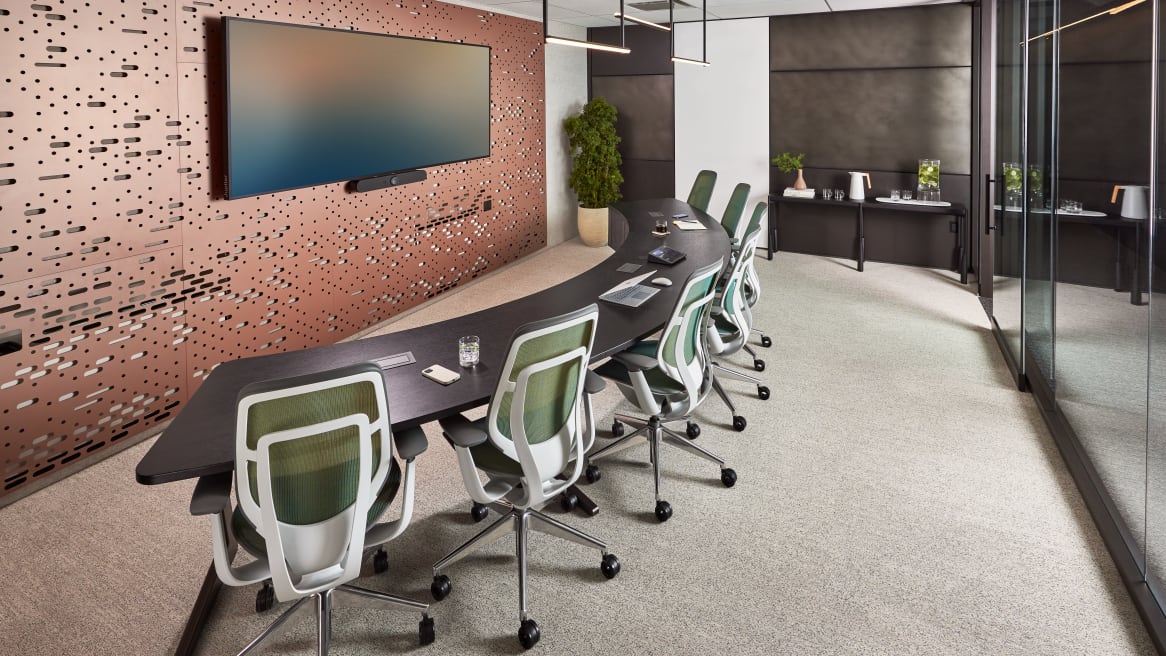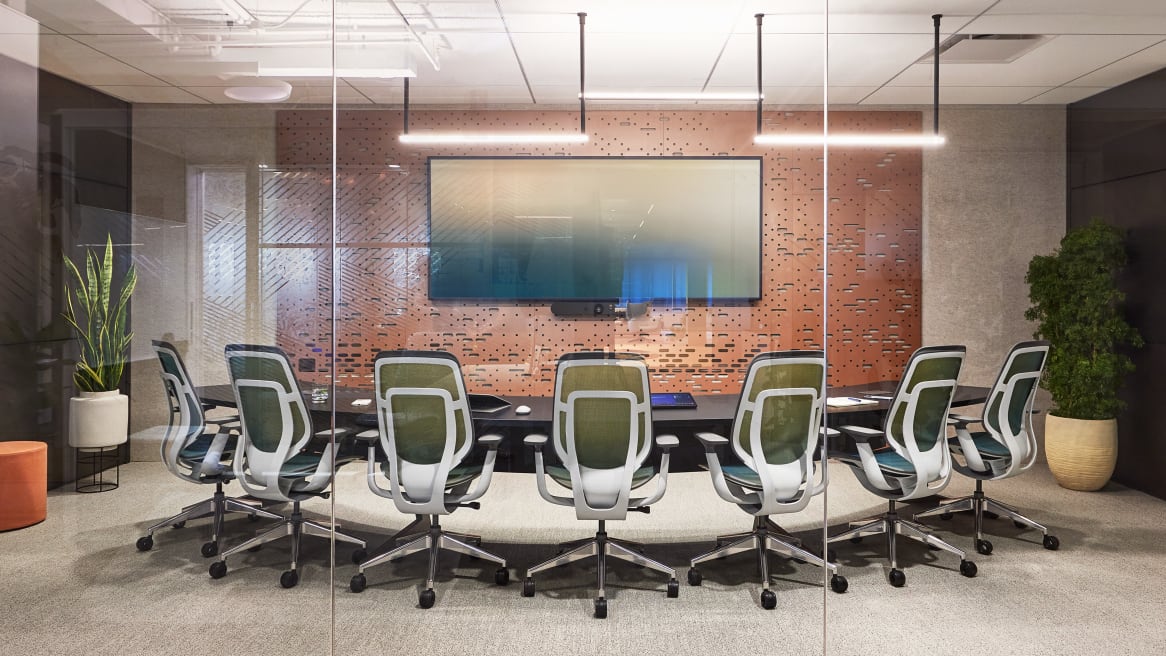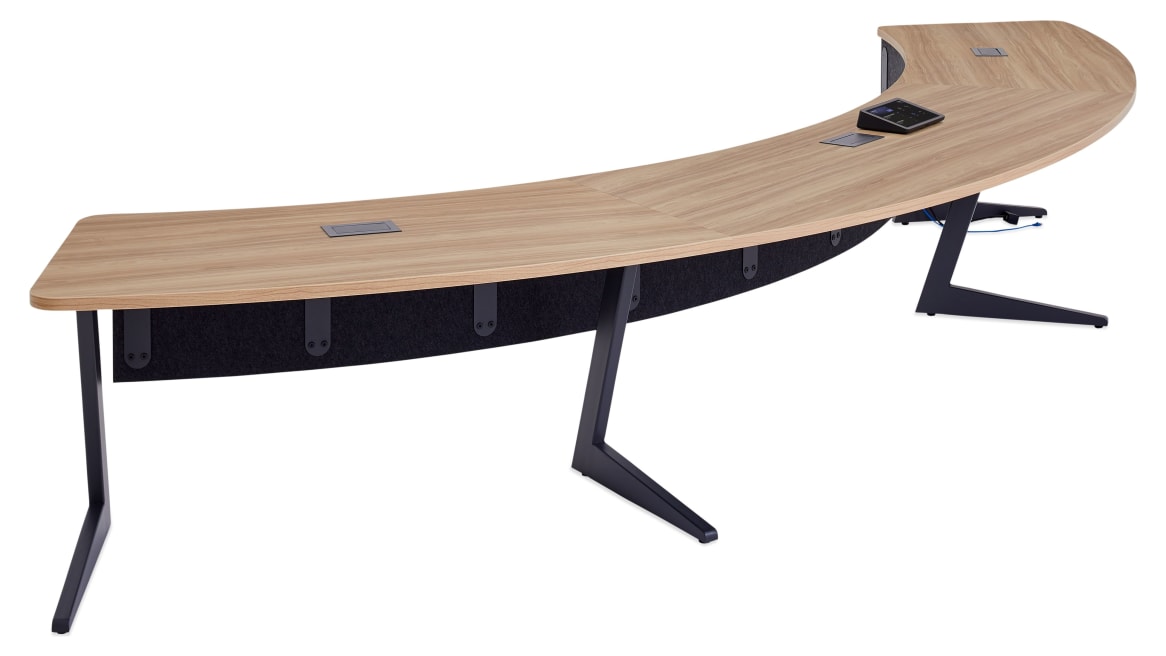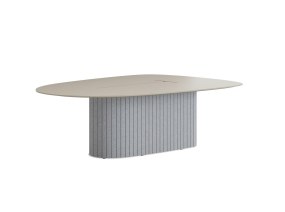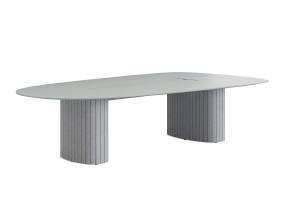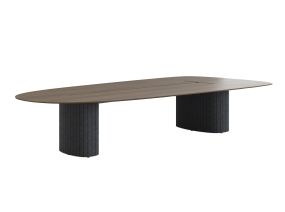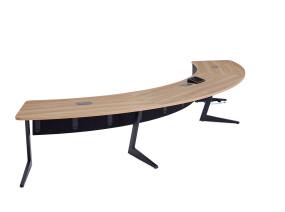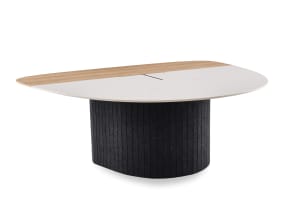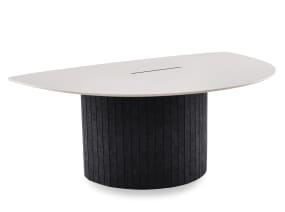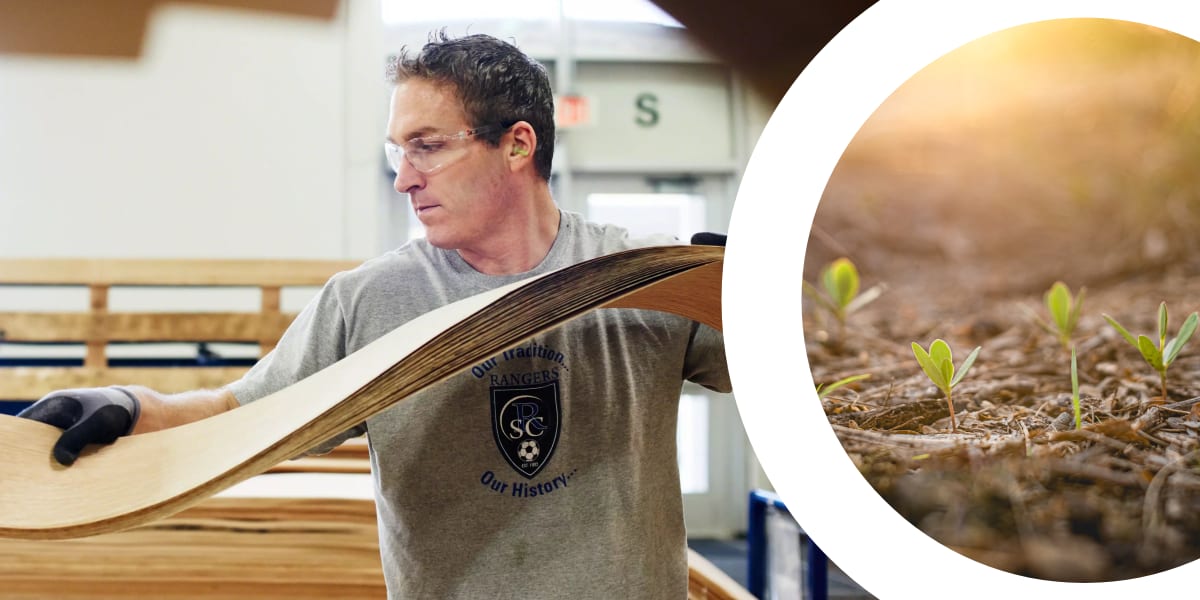Ocular™ is a collection of tables designed for hybrid collaboration. Unique table shapes improve sightlines, creating a more equitable experience for in person and remote meeting participants.
Planning for the Workplace?
Uncover options to create an inspiring space.
Configure NowShopping for a Home Office?
See all the options for your work-from-home upgrade.
Buy Now
Rethink your Hybrid Meeting Rooms
Ocular tables were designed to accommodate the increasing need for video conferences in meeting rooms and hybrid collaboration spaces.
The organic shapes allow everyone – whether in the room or elsewhere – to see, connect and meet better.
Designed for Hybrid Work
Ocular table shapes were intentionally designed around three key sightlines for people participating in a virtual meeting – people to people, people to screens, people to cameras.
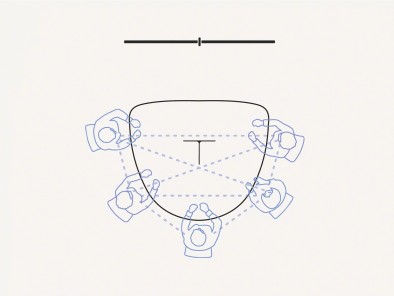
People to People
Conversation and collaboration should feel natural and comfortable between people around a conference table.
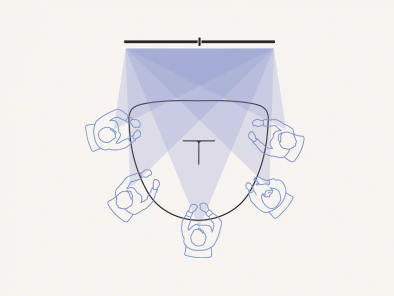
People to Screens
When meeting or content sharing, everyone should have a good experience and view of the screen.
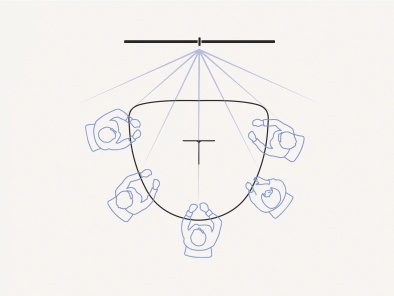
People to Camera
The room’s camera should capture everyone in the room so that remote attendees can feel connected and engaged during video conferences.
Product Range
–
Ready for Technology
Ocular tables were designed to house, route and mount the technology required in today’s Microsoft Teams Rooms, Zoom Rooms, and other video enabled meeting rooms.
Features
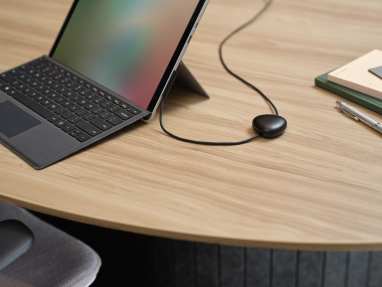 Open image tooltip
Open image tooltip Power Pods
Weighted power pods plug to devices and keep the cords from falling into the table when not being used.
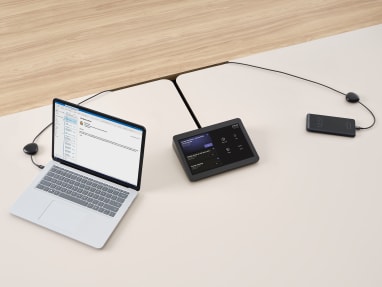 Open image tooltip
Open image tooltip
Aperture
A universal aperture opening allows routing access for power, microphones, and meeting controllers.
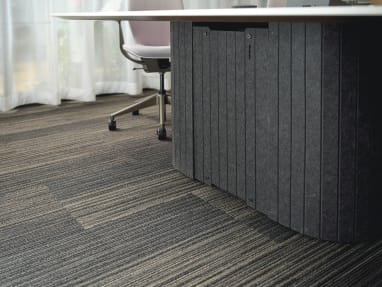 Open image tooltip
Open image tooltip
Tech Door
A hidden tech door in the drum base keeps technology hidden away.
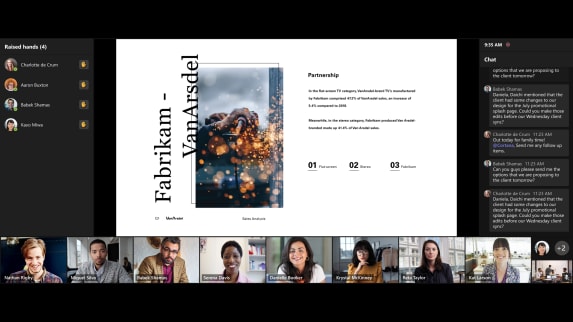
Hybrid Design
Ocular was co-designed and developed with Microsoft for the Microsoft Teams Front Row experience (pictured above.) The focus on hybrid collaboration from its inception means it can benefit other hybrid meeting spaces as well using any number of software platforms.
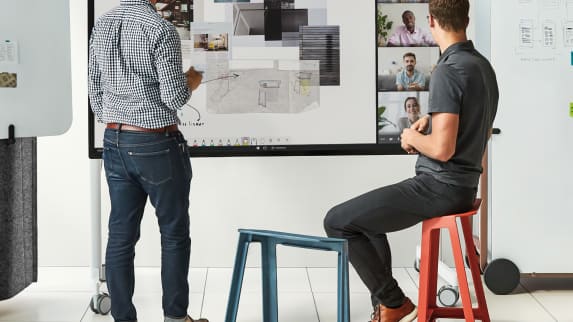
Microsoft Partnership
Steelcase and Microsoft have been working together since 2017 to thoughtfully integrate place and technology to create better spaces, co-design products and explore how individuals and teams can do their best work.

